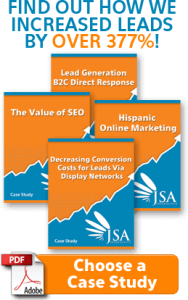Anyone searching for B2B marketing tips might wonder, “How many pages does my website really need to have to be the most effective?”
It’s a good question, and one with no specific answer (as in, “You need 57 & a half pages to get all the traffic”), but according to some interesting research conducted by the fine folks over at HubSpot, the more pages your business has on its website, the more traffic you can attract.
B2B Marketing Tips: How Much Content Do You Really Need?
In a study of over 7,000 of their customers and their related marketing benchmarks, HubSpot has determined that the more pages you have on your website, the more substantial amounts of traffic you will see. The information is broken down nicely in a ton of charts and graphs, segmenting the statistics by B2B and B2C focused companies, as well as by the number of employees, but one of the most interesting statistics of the whole lot is this one:
Companies with 51 to 100 pages generate 48% more traffic than companies with 1 to 50 pages.
If you’ve been looking for an incentive to stop procrastinating and begin blogging or adding other pages of content to your website, I don’t think you’ll find much better in the way of hard numbers to get you moving.
And if you want to feel even more inspired to create even more content, how about this one?
Both B2B & B2C companies with 101 to 200 pages generate 2.5x more leads than those with 50 or fewer pages.
200 pages sounds like a lot of pages, but if you blog every day and properly optimize each one every time, then you’ll get there in well under a year doing that alone, and you’ll still be enjoying all of the other benefits using a blog as part of your inbound marketing efforts brings. Add in things like your landing pages and other static website pages, and it’s a lot more attainable than it seems at first blush.
[single_callout/]













